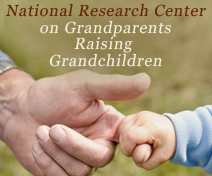ScholarWorks > Institutes & Centers > Grandparents Raising Grandchildren > GrandFamilies > Vol. 7 > Iss. 2 (2024)
Abstract
Globally, many grandparents are taking on the caregiving role for their grandchildren without public or government interjection of support, particularly financial assistance for basic needs such as housing, health care and living expenses. This paper aimed to broaden understanding of social and systemic barriers experienced by grandparent-caregivers across the globe. Of the 2,828 relevant grandparent caregiving studies identified in the literature, 34 representing eight countries met our inclusion criteria to answer the research question and the focus of this paper: What are the social and systemic barriers experienced by grandparent-caregivers across the globe? We utilized Noblit’s and Hare’s (1988) meta-ethnography method and phases of the eMERGe reporting guidelines (France et al., 2019) to improve the completeness and clarity of the synthesis. Bronfenbrenner's socioecological model informed the qualitative analysis that consisted of three interactive levels that impacted the various aspects of grandparent-caregivers and their grandchildren: the exosystem (physical environment and programs and services), macrosystem (systemic barriers, culture, religion, and spirituality), and chronosystem (time and historic influences). The use of both the meta-ethnography approach and eMERGe guidelines increased transparency, reproducibility and credibility of the synthesis, while the socioecological model enabled us to effectively identify common global and cross-cultural needs among grandparent-caregivers. Our findings have potential to: (1) identify gaps in, and barriers to, available resources for grandparent-caregivers and (2) inform the design of comprehensive intervention models and screening tools needed to address perceived support needs. Further research is needed on comprehensive assessment of support needs and health risks unique to each setting.
Recommended Citation
Matovu, S. N.,
Whitley, D. M.,
Young, H. M.
(2024). A Global Perspective on Intersecting Social and Systemic Barriers Experienced by Grandparent-Caregivers: A Qualitative Systematic Review. GrandFamilies: The Contemporary Journal of Research, Practice and Policy, 7 (2).
DOI: https://doi.org/10.15453/3067-3674.1130
Available at: https://scholarworks.wmich.edu/grandfamilies/vol7/iss2/6
Included in
Family Practice Nursing Commons, Geriatric Nursing Commons, Public Health and Community Nursing Commons
